1. C.S. Lewis: A Life by Alister McGrath
2. Guns, Germs, and Steel by Jared Diamond
3. The Vanishing American Adult by Ben Sasse
4. Creativity, Inc. by Ed Catmull
5. The Devil in the White City by Erik Larson
6. Jurassic Park by Michael Crichton
7. A Grief Observed by C.S. Lewis
8. Confessions by Augustine
9. The Grapes of Wrath by John Steinbeck
10. A Long Way Home (Lion) by Saroo Brierly
“What is curious is how elusive Bitcoin is, as a thing to understand. Bitcoin often gets explained but somehow never stays explained. You nod along and think you are getting it but then wake up the next morning needing to hear the explanation all over again.”1
-Michael Lewis
Other than what could be called “miscellaneous,” there were two types of entries in my 2017 journal. The first were detailed notes from my church’s Sunday Night School of Theology, the second were detailed notes from my church’s book study on Rankin Wilbourne's Union with Christ. Lots and lots of notes. Long ones. Sketches. Quotes. Bible verses. References. Suggestions for further reading. I put so. Much. Work. And. Effort. in 2017 into understanding God and my proper relation to him. The theology lectures attacked the head. The book group attacked the heart. I worked it from both sides. And I worked it hard.
And looking through my journals, I found I woke up and needed to hear the explanations all over again.
Rankin Wilbourne quoted Leo Tolstoy to try to explain things.
“The changes in our life must come from the impossibility to live otherwise than according to the demands of our conscience, not from our mental resolution to try a new form of life.”2
This was the introduction to chapter 3. Following that quote, I have another 15 pages of mental resolve in my journal pages capturing Wilbourne's instructions on how to go about this life changing.
I had written down another quote from one of the pastors that taught my theology lectures.
“Christianity becomes attractive in part as Christians become the most healthy, whole, people that others come in contact with.”3
I resonate with that statement. A few years later, I left that man's church when I realized he was the single most self-absorbed and narcissistic leader I have ever encountered. I left his church after being in his presence became unbearable, often resulting in tears and hiding in the church bathroom throughout the service. No one in the church seemed to notice. No one in the church seemed to think making a change was necessary. No one else seemed troubled in their conscience by this. Not after private meetings with five separate church elders, where they all shook their heads in an empathetic gesture but made no changes to their behavior. Not after the pastor I quoted sat in my living room and compared me to the quarterback Jalen Hurts and told me I probably needed to leave his church to do something meaningful, the way Jalen Hurts got forced out of Alabama and won the Heisman Trophy at the University of Oklahoma.
A couple years after that, that pastor fired one of my close friends from his full-time job in the church after my buddy brought up some concerns about this guy’s leadership.
I probably sound bitter. Because I am. But I am also troubled in my conscience by the ways I've seen actions repeated in the church with no changes taken. Troubled by when the words I write down in my journal don’t match the actions of the people who spoke them.
Then again, as I was told by my pastor as he sat in my living room, I'm a “thorny person to lead.” It’s probably all my fault I feel this way. And my deep-seated resentments and hurts are probably my fault too. He’s a pastor after all. He would know.
Let me go back and check my notes to figure out how I'm supposed to fix all that.
I seem to have forgotten.
I seem to have woken up.
●●●
1. C.S. Lewis: A Life by Alister McGrath
I'm not sure why my wife and I were in Parable Christian Bookstore, but there was an entire aisle on C.S. Lewis. I liked this aisle. I had read nearly all the works written by Lewis himself, but it was hard for me to know which biography was worth reading. I had Alan Jacobs's The Narnian, but I wanted some kind of refresher.
This book caught my eye. The text for my Sunday Night School of Theology was Christian Theology by Alister McGrath and I had been doing weekly readings from it for months. It was a little heady, but a good book as far as textbooks go. I had no idea McGrath had also written a Lewis biography. I pointed it out to Paige, and for my birthday I unwrapped it. I’m glad I read it, if for any other reason it helped me make a list of places to visit that summer when Paige and I went to England. It's so much better visiting The Kilns, The Eagle and Child, The Lamb and Flag, and Holy Trinity Church after reading about The Kilns, The Eagle and Child, The Lamb and Flag, and Holy Trinity Church.
It's amazing to see the real thing after reading about it.
“Theories of the atonement are not the heart of Christianity: rather they are attempts to explain how it works. We see here Lewis's characteristic resistance to the primacy of theory over theological or literary actuality. It is perfectly possible to accept what Christ has done without knowing how it works. Theories are always, Lewis holds, secondary to what they represent.”4
-McGrath
●●●
2. Guns, Germs, and Steel by Jared Diamond
With thanks to our friend Lin Manuel Miranda, in 2017 the American Revolution was cool again. I jumped into the fad and my reading lists became inundated with biographies of founding fathers and recollections of Revolutionary battles. It's interesting to understand the historical “how it happened,” but history tends to be silent on “why it happened to this particular people at this particular place at this particular time.” History records facts and events, but not everything that explains the way things are neatly fits into the category of facts and events.
Jared Diamond tries to fill some of those gaps.
Said another way, why is it that white people conquered the world and not black people? Or any other race? According to Diamond, it had nothing to do with any sort of intellectual brilliance and more to do with environmental factors as simple as white people tended to live in countries that stretched from west to east instead of north to south.
It's speculative, sure, but man is it interesting. It helped a lot of things make sense to me— including the acid trip art installation of Denver's Meow Wolf where I stumbled on Diamond’s book crammed into an art sculpture. Apparently, the stoners that made this creative homage to industrialization wiping out indigenous cultures didn't just randomly choose which paperbacks should go in the book fort.5
I love it when people pay attention to detail.
“The New Guineans whom I know include potential Edisons. But they directed their ingenuity toward technological problems appropriate to their situations: the problems of surviving without any imported items in the New Guinea jungle, rather than the problem of inventing Phonographs.”6
- Diamond
●●●
3. The Vanishing American Adult by Ben Sasse
I've never been very political. I didn't know who Ben Sasse was when he made his first Senate run. The first time his name piqued my interest was when I was at a church men's retreat and the pastor said, “aren't you glad you have a Senator like Ben Sasse who doesn't put up with the bullshit in Washington DC?” He apologized later for swearing, but I made a note to pay more attention to Mr. Sasse to see what type of bullshit he didn’t put up with.
I bought his book. And loved his book. Sure enough, he seemed like the kind of guy that didn't put up with the bullshit of Washington DC— but I also found him thoughtful, funny, and measured. He's the only active politician I’ve considered volunteering for, but Sasse’s Senate re-election campaign didn’t need my help after the cupcake-store-owner running against him had his own party withdraw their support when his staffers accused him of sexual harassment.7 Sasse won by the biggest margin of victory in Nebraska history.8
I met Sasse briefly while in Beatrice, Nebraska to see a solar eclipse where Bill Nye the Science Guy was scheduled to make an appearance. As an autograph hunter, I brought a hockey puck for Nye to sign, but was let down when the guy turned out to be a total dick. Throngs of children and nostalgic adults followed Bill around while he ignored them. He grabbed a couple of books and signed them, but when a kid handed him a birthday card intended for a family member, the Science Guy threw both palms up in the air as if the autograph seeker was handing him a bag of dog shit.
“I'M ONLY SIGNING BOOKS I WROTE! ONLY BOOKS ONLY BOOKS ONLY BOOKS!”
Since a hockey puck isn't a book, I walked away without a signature but with the knowledge that this happy-go-lucky kid’s personality was a complete tool.
Then I saw Ben Sasse. He had his own pack of followers, but they looked more like political staffers rather than pre-teens who liked to watch explosions. Whereas Bill Nye stood in a field alone, staring up at the sky not wanting to be bothered— Sasse was walking with purpose. He briefly stalled outside a side doorway in the visitor's center, where I slid next to him, presented the puck, and sheepishly asked, “I know you're really busy and have places to be, but would you be willing to sign this?”
He gave me a smile, replied “absolutely,” and chatted with me while pretending that asking a U.S. Senator to autograph a hockey puck is a totally normal thing to do. Maybe he was just a politician wanting my vote, but I didn't get that vibe. I just felt like he was a really, really good dude.
And he got my vote.
●●●
4. Creativity, Inc. by Ed Catmull
Last night my daughter and I were trying to decide how to survive the remainder of her 5-day weekend. She suggested watching a movie, and since this option allowed me to outsource my fathering for an hour and 35 minutes to a television set, I embraced the idea. She went through our DVD collection and narrowed her choice of potential movies down to five selections. Three of them were made by Pixar. Her and I had an excruciating time landing on the final choice.
Back in my youth, Pixar was the King Midas of children's movies. Every single feature film—and three quarters of the shorts—was inventive, heartwarming, funny, and profound. Centuries later when textbooks are written on western societies, Toy Story and Up will be named alongside Shakespeare and Beowulf as literary masterpieces that defined a culture. Those movies are that. Damn. Good.
Even though Turning Red and Elemental are harder to watch than my children’s music recitals, Pixar's ability to churn out brilliant masterpiece after brilliant masterpiece in the early years is nothing short of remarkable. It turns out, they didn’t just get lucky a whole bunch— they had a culture and a process that created an environment ripe for all of this success and beauty. And they practiced what they preached.
Catmull's description of this time is spellbinding.
They were really good at casting spells.
“Why ‘Pixar’? The name emerged from a back and forth between Alvy and another of our colleagues, Loren Carpenter. Alvy, who spent much of his childhood in Texas and New Mexico, had a fondness for the Spanish language, and he was intrigued by how certain nouns in English looked like Spanish verbs— words like ‘laser,’ for example. So Alvy lobbied for ‘Pixer,’ which he imagined to be a (fake) Spanish verb meaning ‘to make pictures,’ Loren countered with ‘Radar,’ which he thought sounded more high-tech. That’s when it hit them: Pixer plus Radar equals Pixar. It stuck.”9
- Catmull
●●●
5. The Devil in the White City by Erik Larson
“Make no little plans; they have no magic to stir men's blood.”10
-Daniel H. Burnham, Director of Works, World's Columbian Exposition, 1893
Whether it’s creating a world's fair or a secret hotel to murder people, you got to love when a plan comes together. When all the things you've plotted and pondered over the years jump from the page to reality.
Well, unless you're the person getting murdered at the murder hotel, at which point it kind of sucks. The Chicago World’s Fair sounded cool though.
●●●
6. Jurassic Park by Michael Crichton
Turns out this movie was a book, it’s fun seeing what getting eaten by dinosaurs looks like in literary form.
The Lost World wasn’t as good. And the red ink on the cover of my Barnes and Noble hardbound edition rubbed off all over my sweaty hands while reading.
●●●
7. A Grief Observed by C.S. Lewis
When C.S. Lewis's wife died, everything stopped making sense. The man who made a career of crafting elegant explanations for the world's most difficult questions was now out of answers. So, he did what a writer does, and he wrote. He wrote what he felt. He wrote what confused him. He wrote what used to make sense, but now in the face of agony, ceased to be understood.
A lot of people were surprised when the pseudonym the book was published under was later revealed as Lewis. Here was a man that cured the doubts of so many, admitting to doubts of his own. Doubts that were so prevalent that the Anthony Hopkins movie about Lewis and Joy Davidman's love ends on a note of doubt.
And yet, Lewis’s friends thought doubt could be comforting—so much so that one friend told a mourning Lewis that he should read this book. The friend had no idea Lewis himself had written it. He thought it might help. He thought hearing someone admit those pains out loud would clear a trailhead toward healing.
●●●
8. Confessions by Augustine
Here’s my confession: I have few journal notes from this book and even fewer memories about what was in it. But I was proud of myself for having read it, so much so that that I felt people needed to see it on my list and go “wow isn’t he smart…”
●●●
9. The Grapes of Wrath by John Steinbeck
Before he was murdered by the Russian government— twice— political activist Alexei Navalny wrote a memoir depicting life in the former Soviet Union and current Russia. He spent a lot of time talking about the propaganda and lies used by his country's leaders to indoctrinate them to some ideal of Russian virtue. But it was hard for the Russians to keep the message straight all of the time.
"If capitalism is so terrible that we should have wept with delight at our luck in being born Soviet children why was my most cherished treasure two multicolored cans of imported beer, so beautiful and alien that everyone, not only children who came to visit, but adults too, picked them up and admired them? And the foreign films so infrequently shown in the Officers’ Club, which told of the hard struggle of the working class against its oppressors, baffled the audience because all the oppressed were wearing jeans, sitting around in bars, and driving automobiles. It says so much that the American film classic The Grapes of Wrath, which relates the dramatic fate of ruined American farmers during the Great Depression and was ideologically perfect for Soviet propaganda, was, soon after being purchased for distribution in the USSR, withdrawn from general release and shown only to a restricted circle of the elite. It was just too difficult to come up with a convincing explanation for the broad masses of the Soviet people of how an American family, deep in poverty, could own a car and appear so much happier about its lot than the average Soviet collective farmer."11
-Alexei Navalny
●●●
10. A Long Way Home (Lion) by Saroo Brierly
Each year my wife and I watch all the Oscar nominations for Best Picture. After seeing the movie Lion about an adopted man finding his biological family, Paige (who is also adopted) sat through the entire end credits in silence, fighting back tears. The movie hit something within her, unlocking an emotion that had been buried over the years of doing everything else in life. But the emotions were there all along. They just needed to be given a reason to come to the surface.
The book is good too.
Going Infinite by Michael Lewis, pg. 104
Quoted in “Union With Christ” by Rankin Wilbourne, pg. 59
From a sermon on 1 John
C.S. Lewis: A Life by Alister McGrath, pg. 293
https://credits.meowwolf.com/convergence-station/ossuary/ossuary-library/
Guns, Germs, and Steel by Jared Diamond, pg. 264
https://www.kios.org/news/2020-06-17/nebraska-dems-pull-support-for-janicek-campaign-over-texts
https://www.nytimes.com/interactive/2020/11/03/us/elections/results-nebraska-senate.html
Creativity, Inc. by Ed Catmull, pg. 30
Quoted in “The Devil in the White City” by Erik Larson, pg. xiii
Patriot by Alexei Navalny, pgs. 12-13



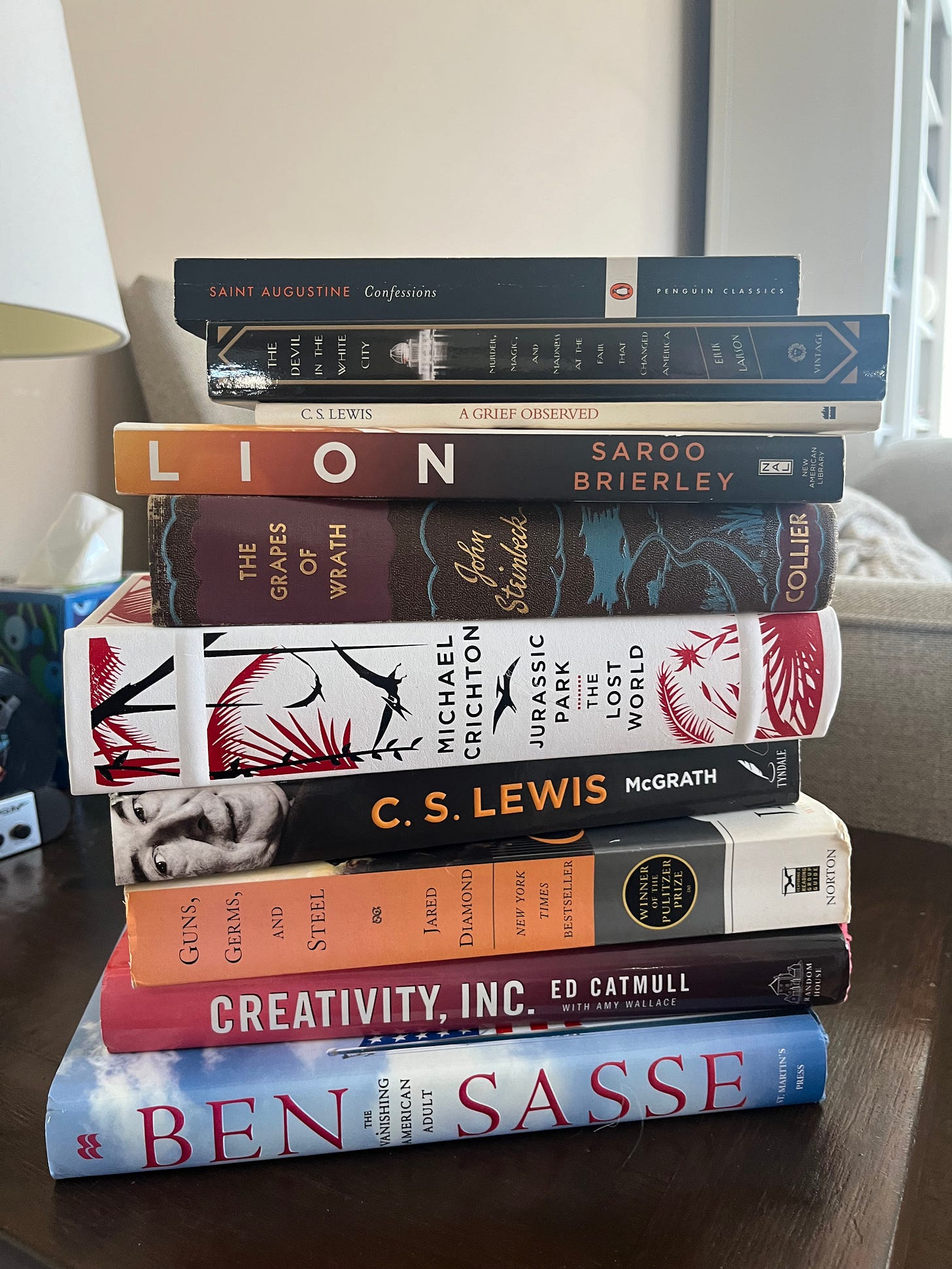
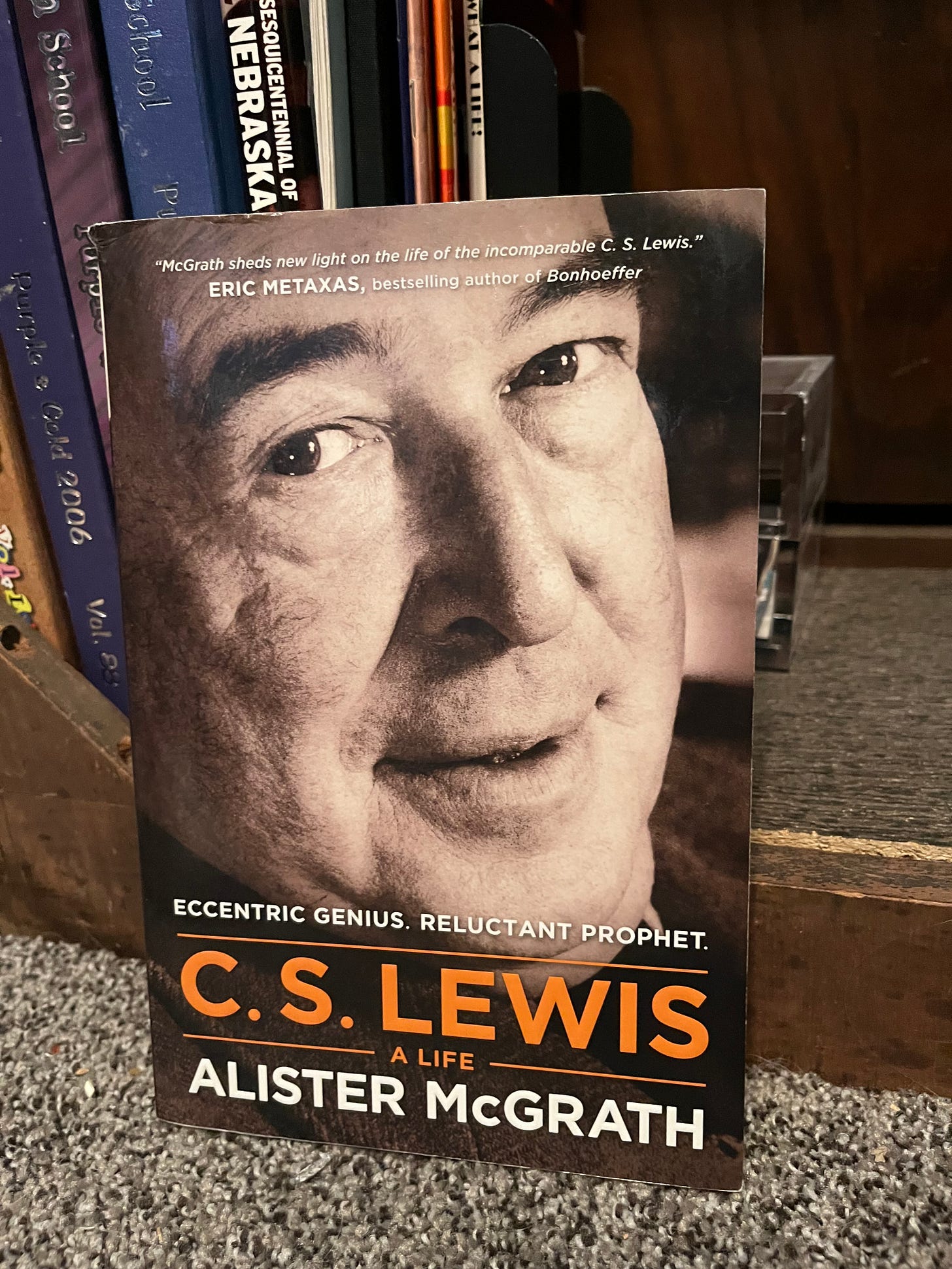
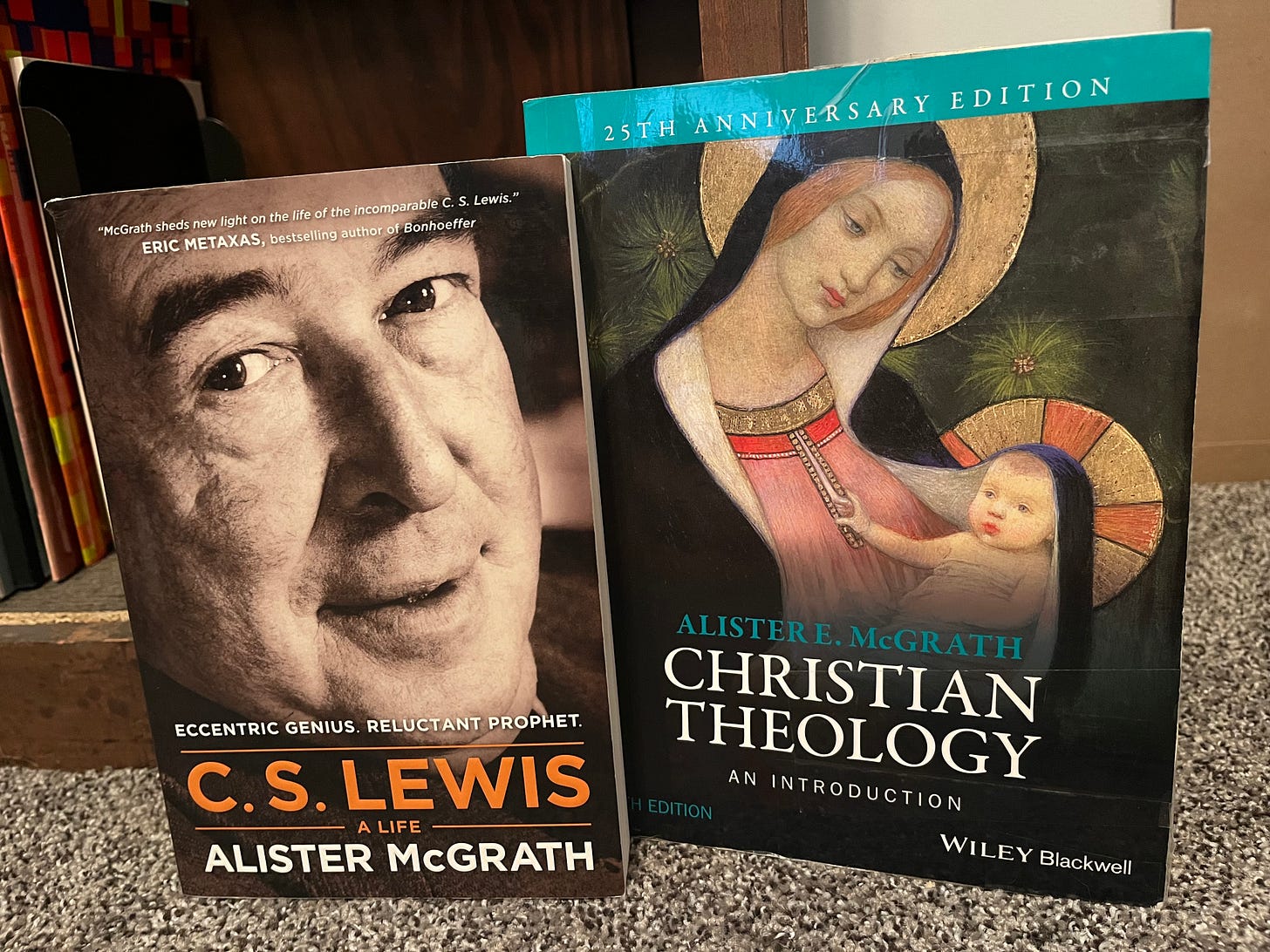
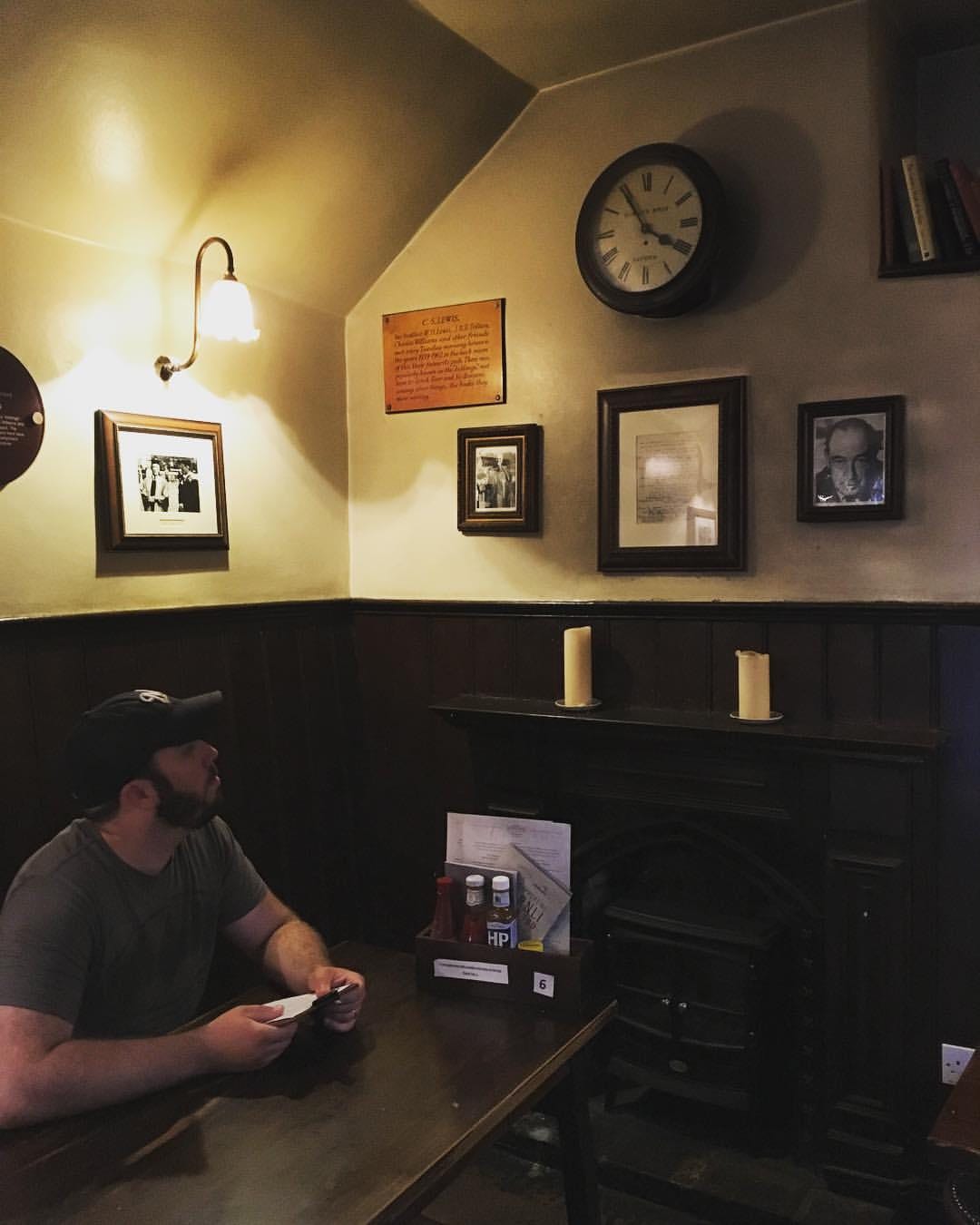
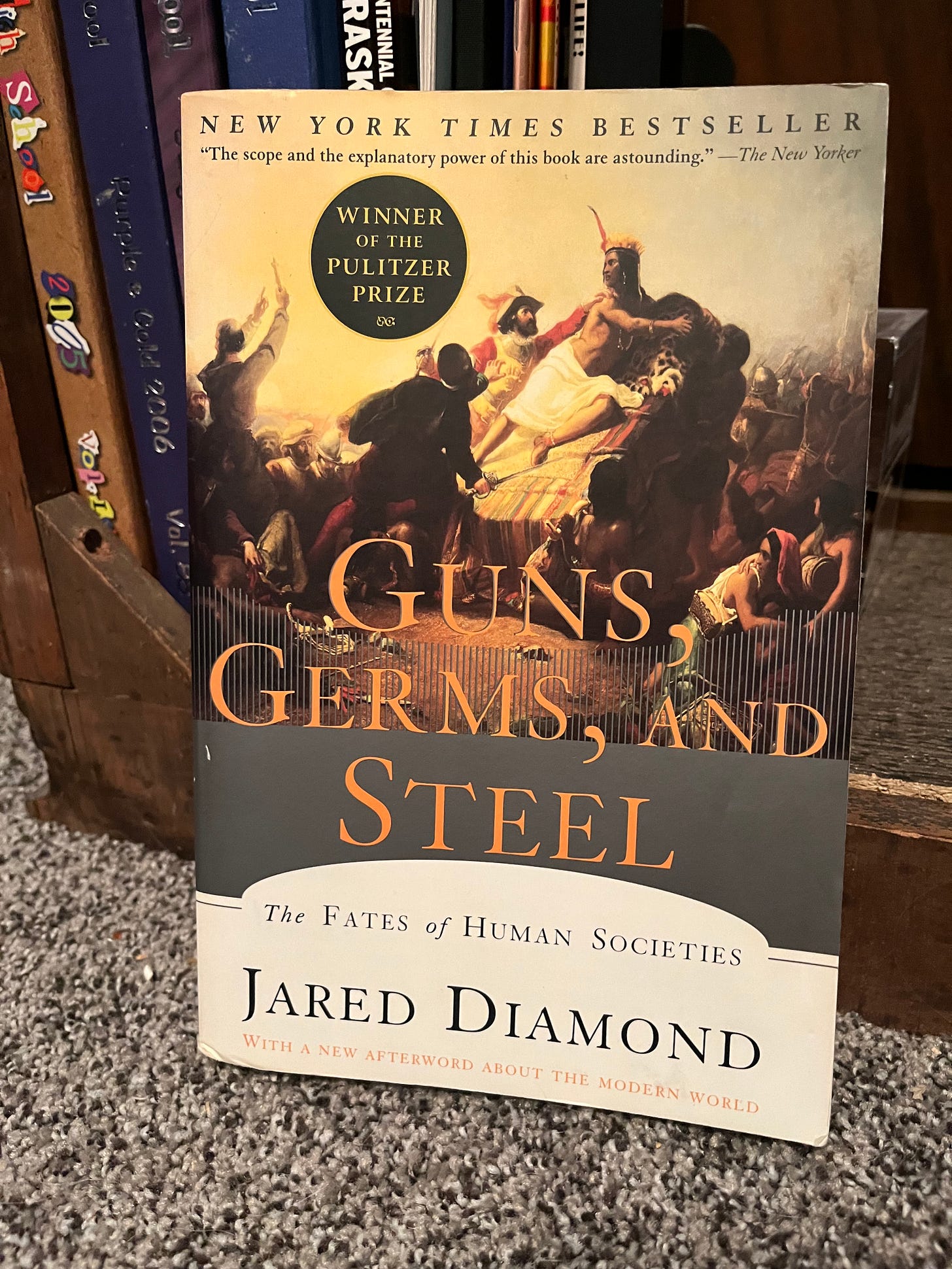

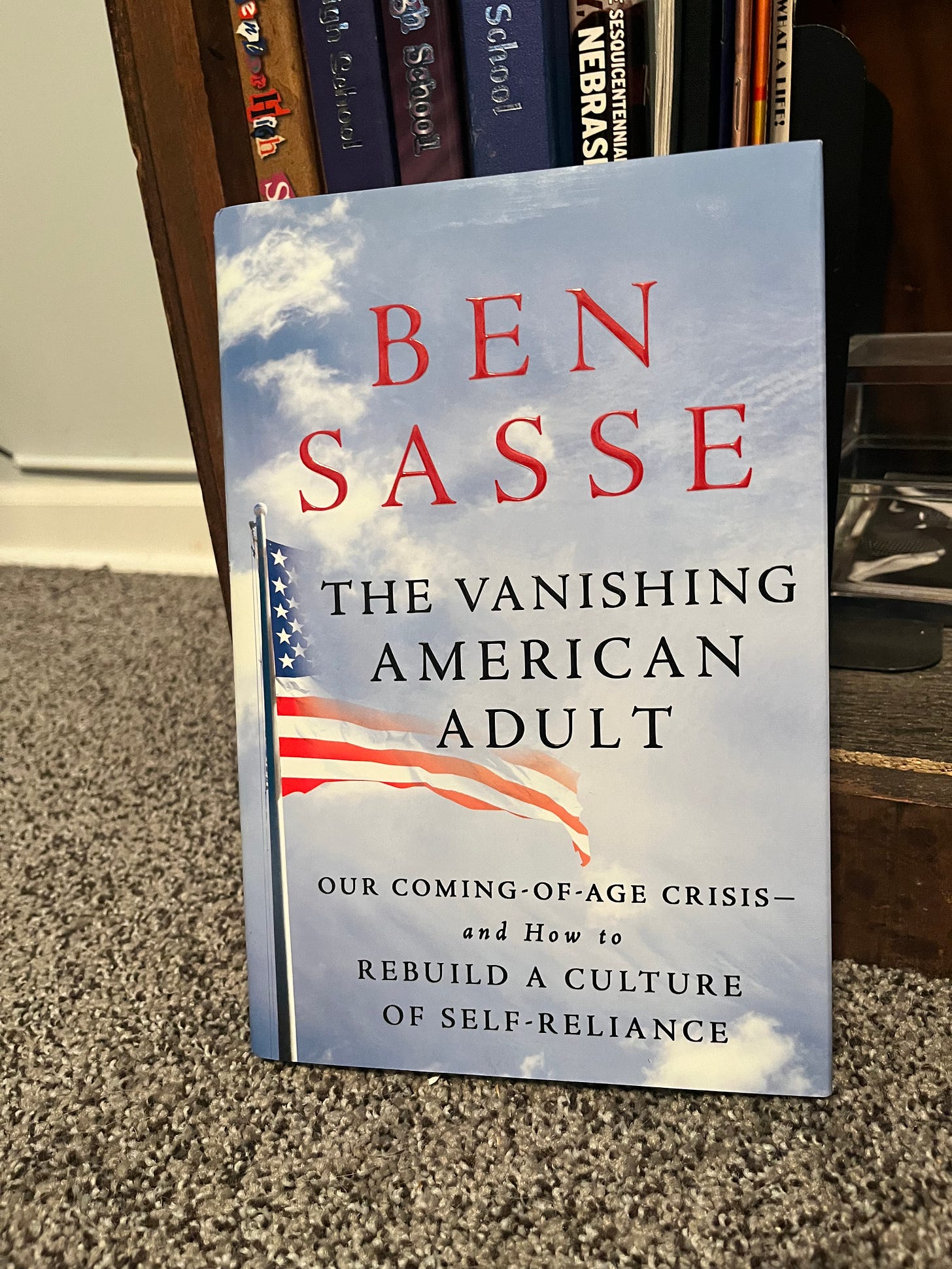
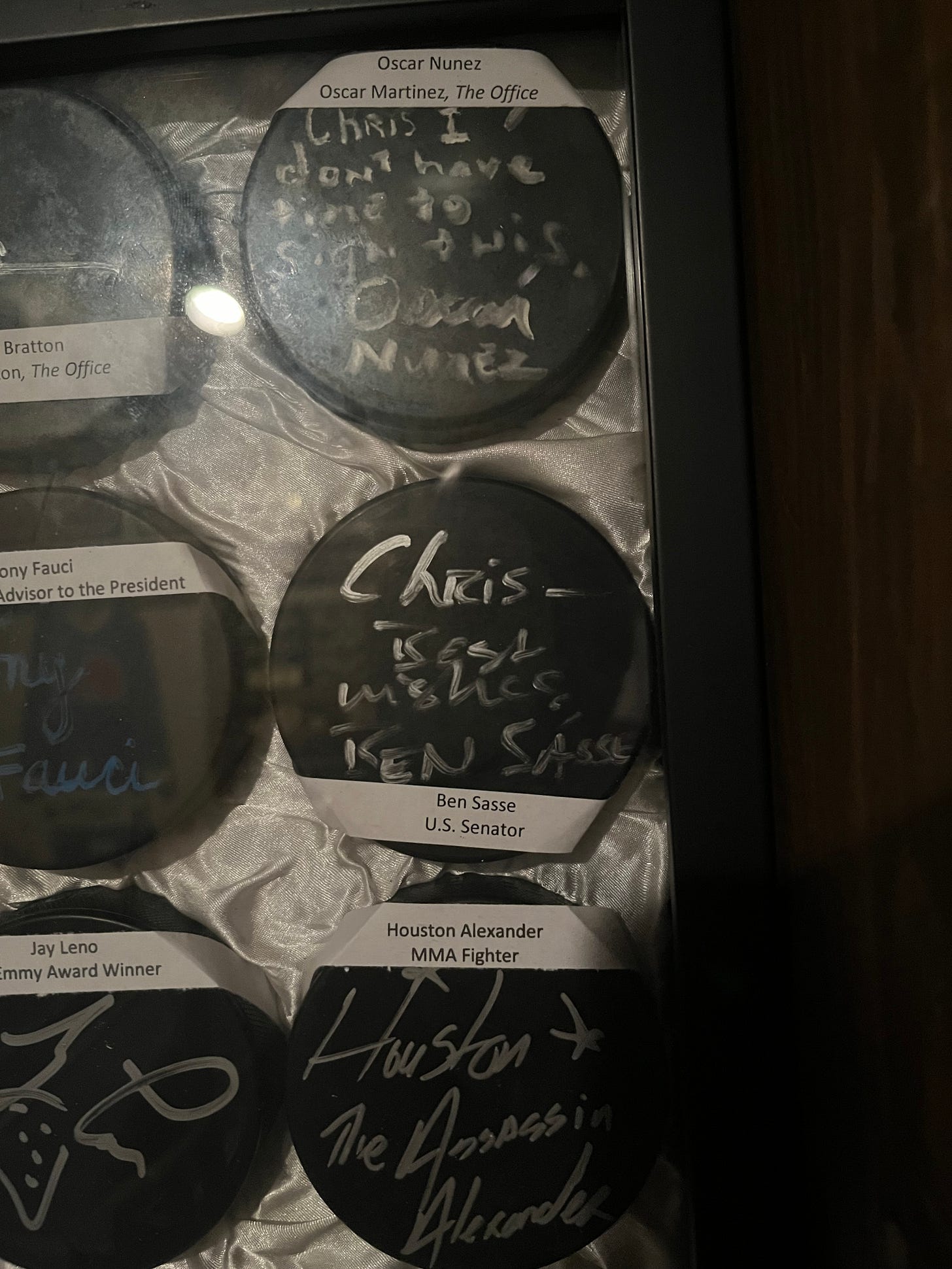
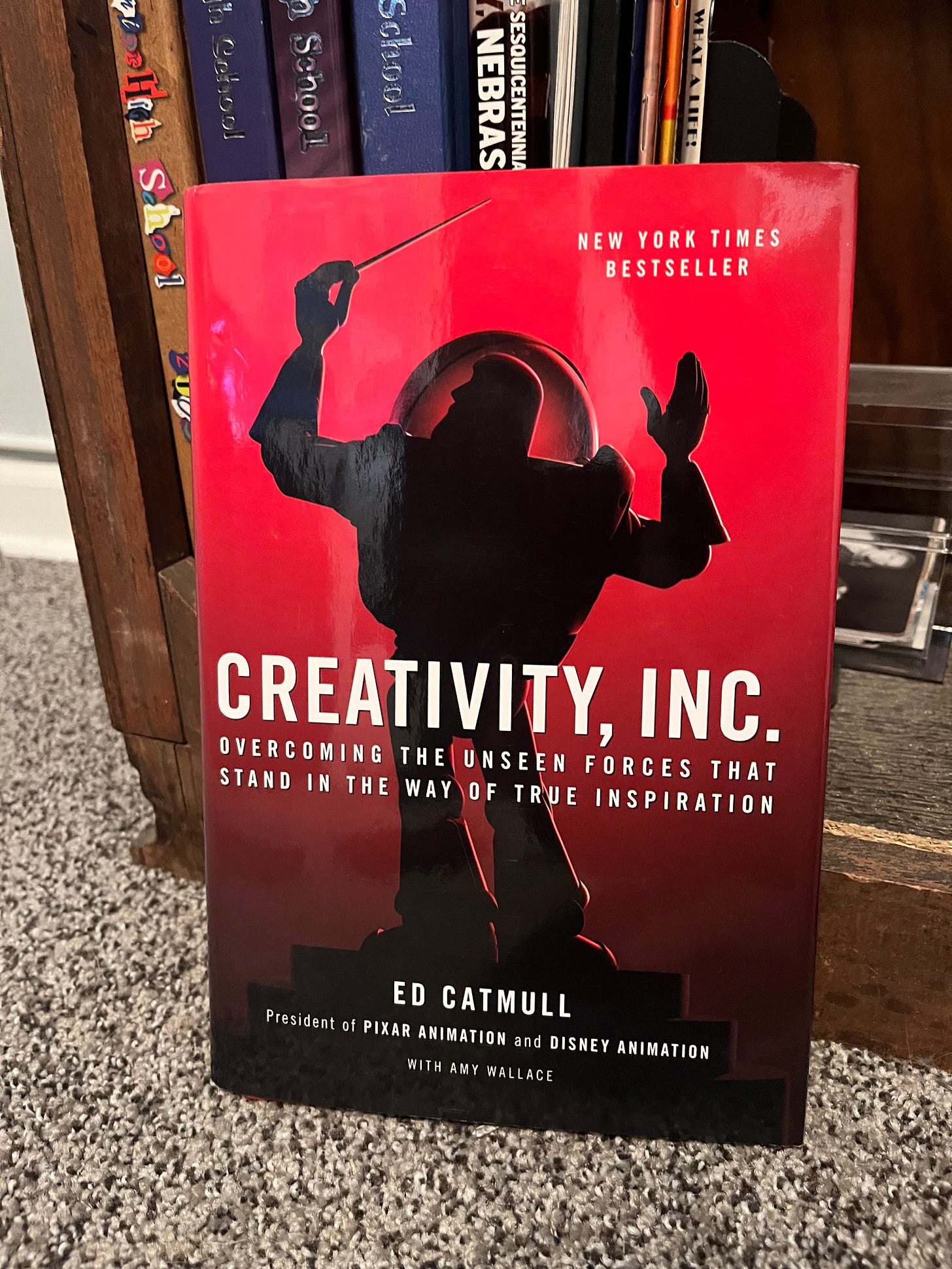
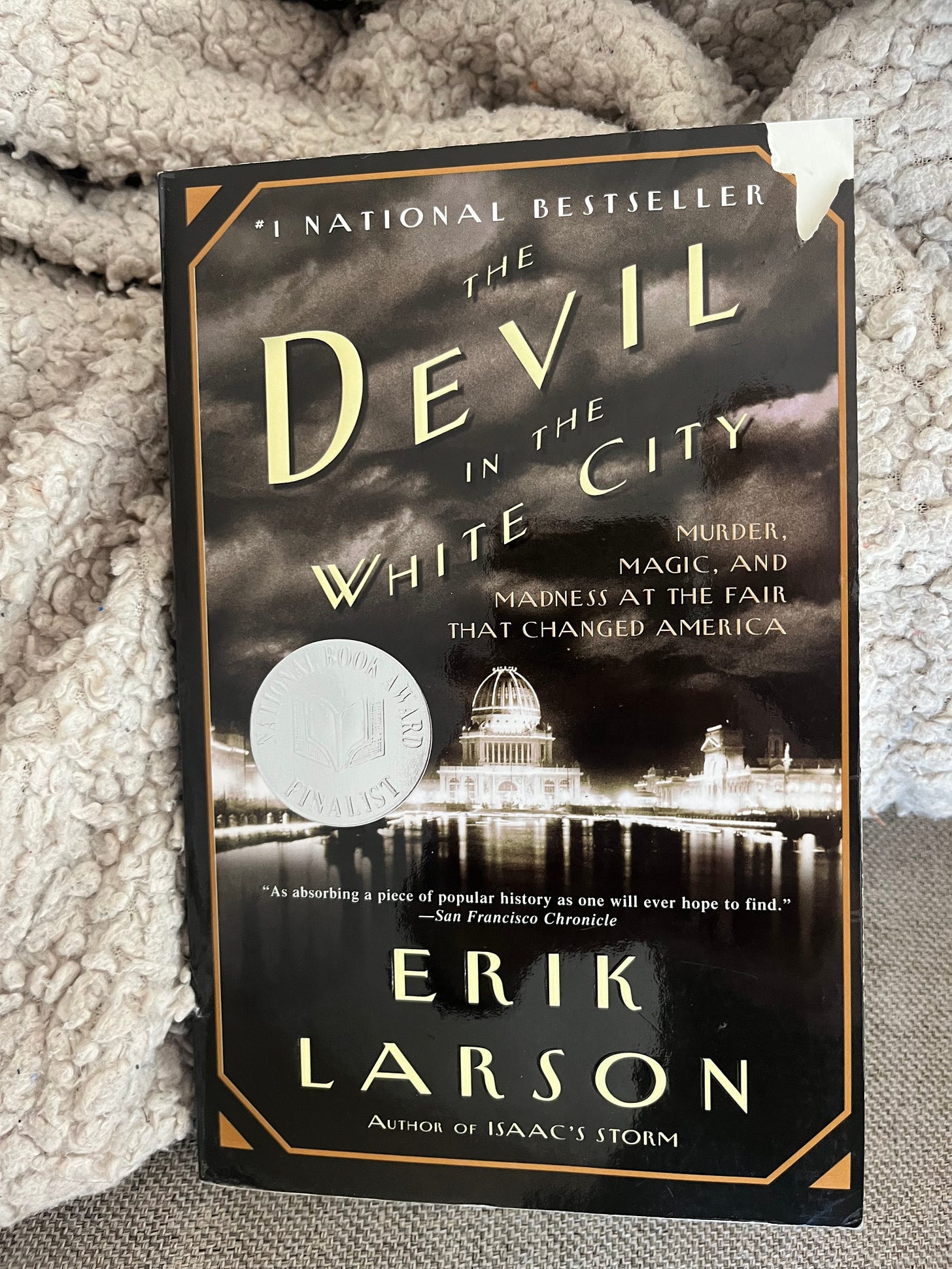
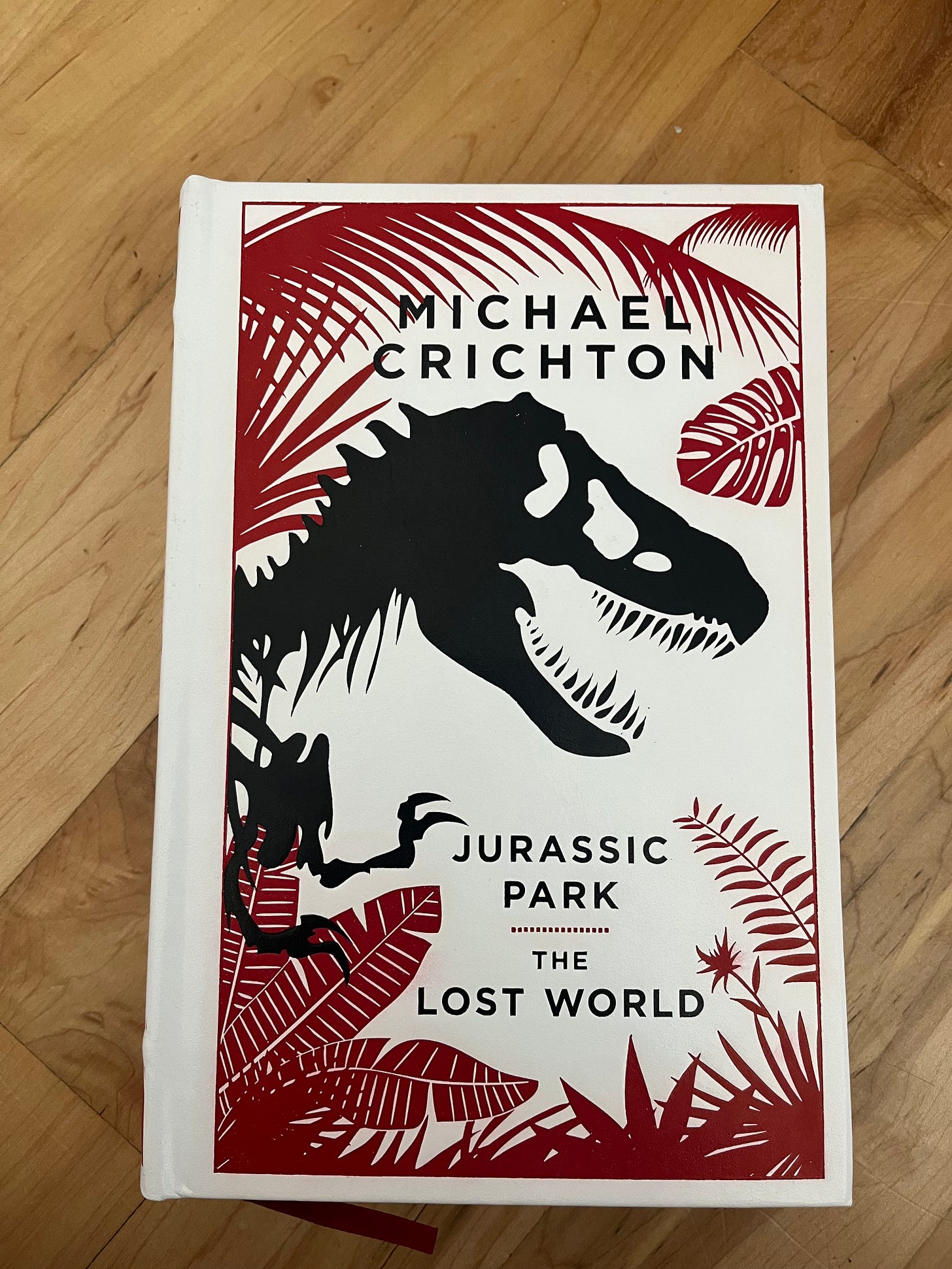
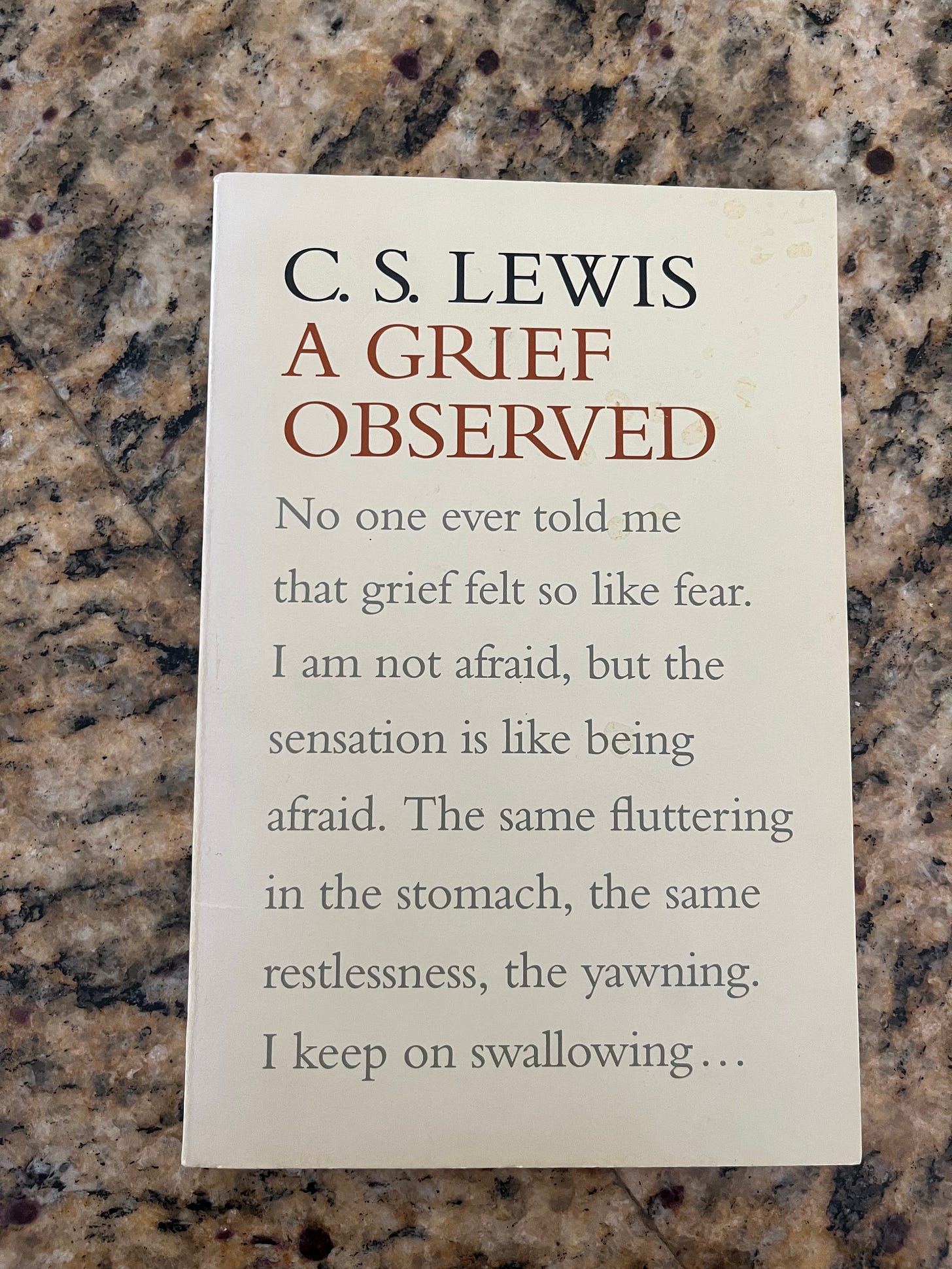
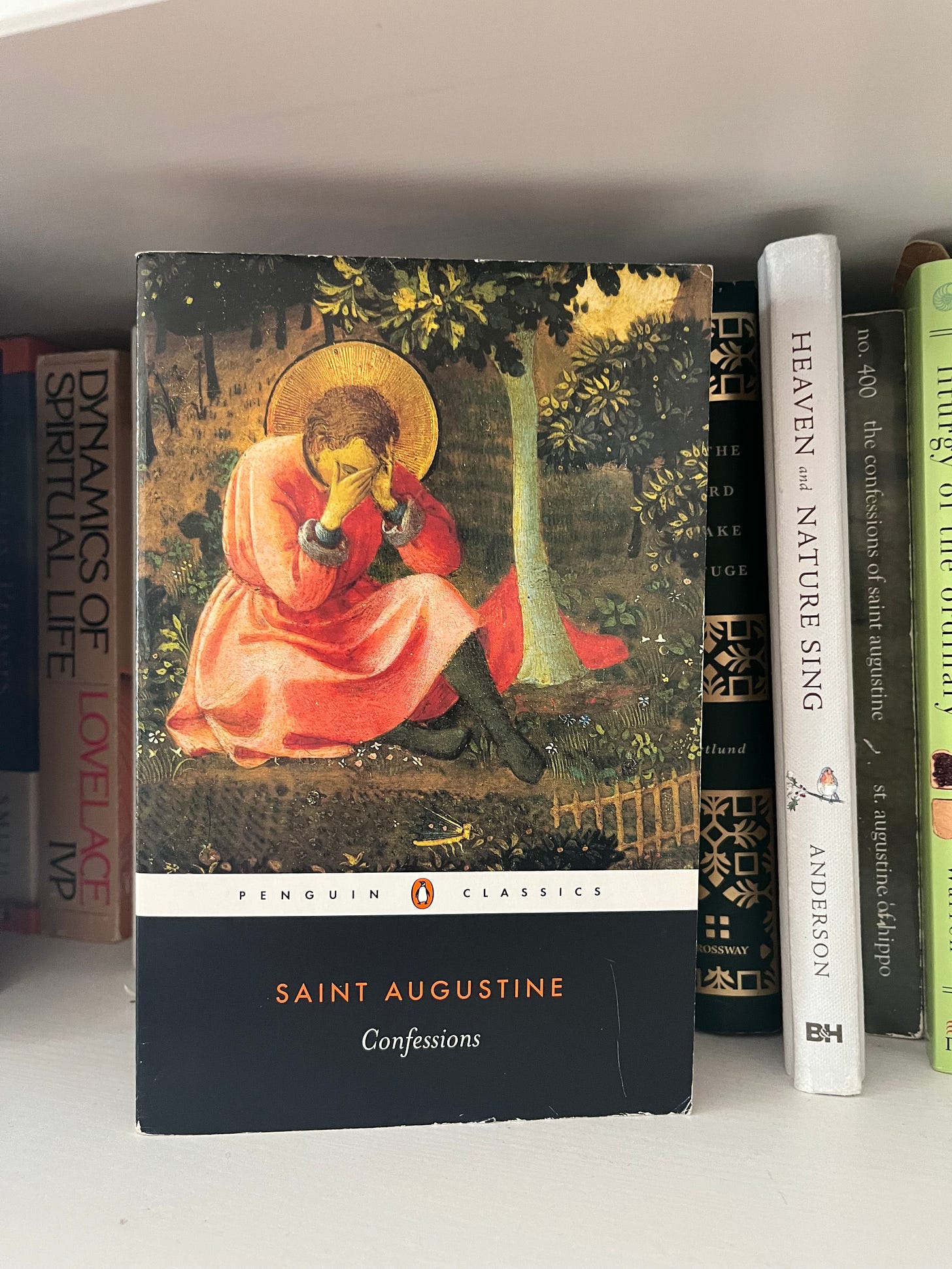
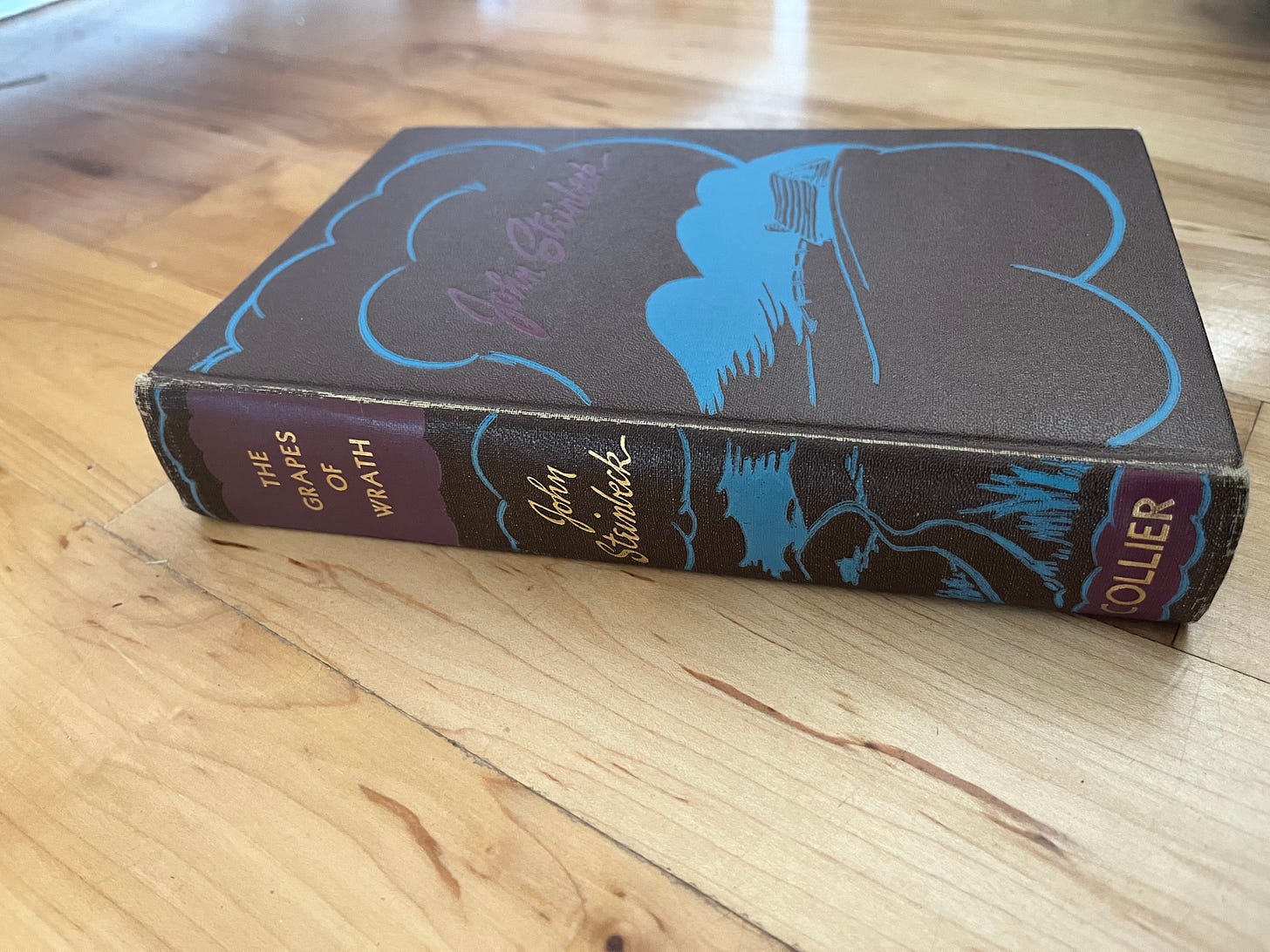
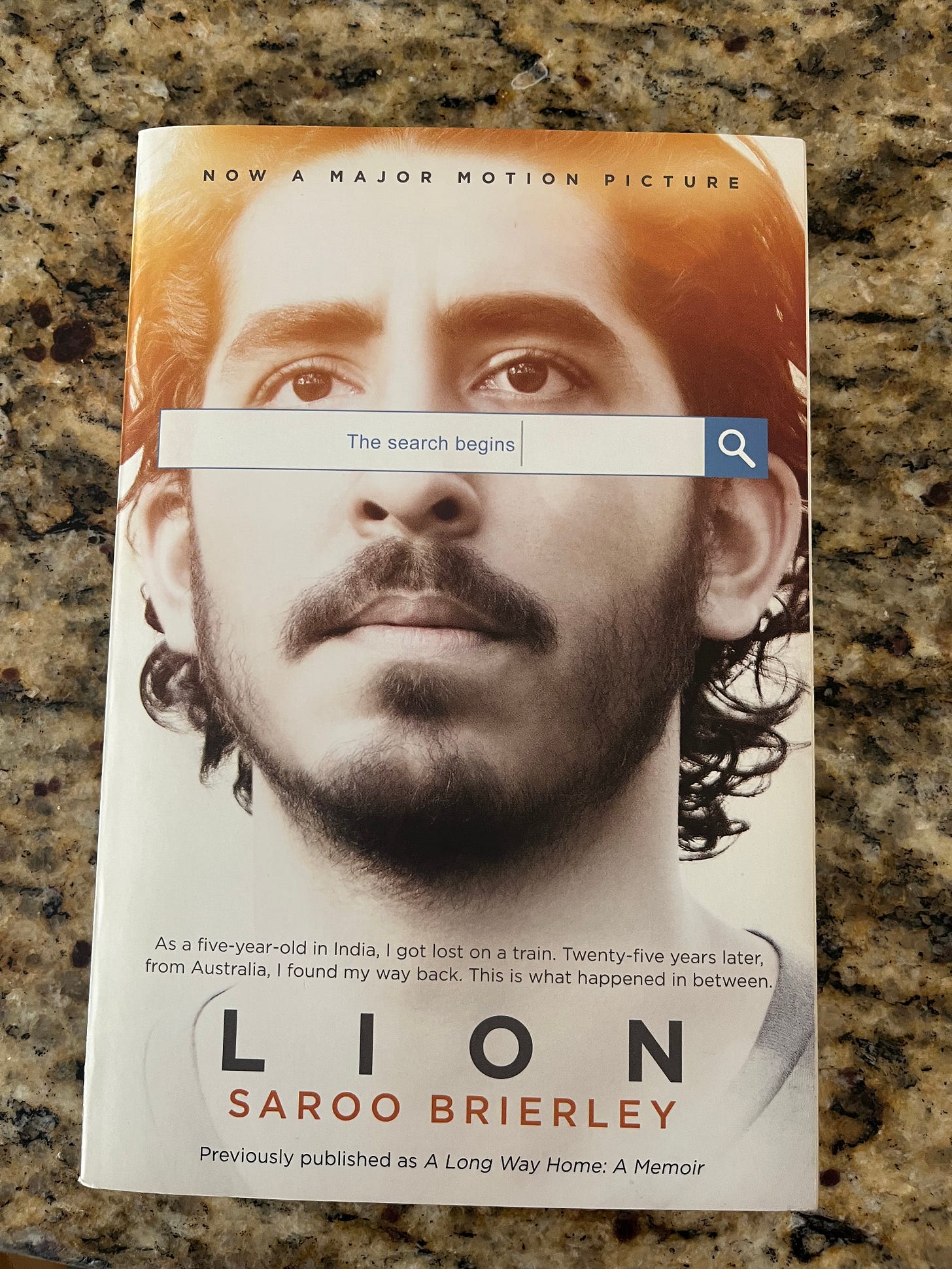
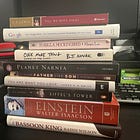


That Tolstoy quote is so good.